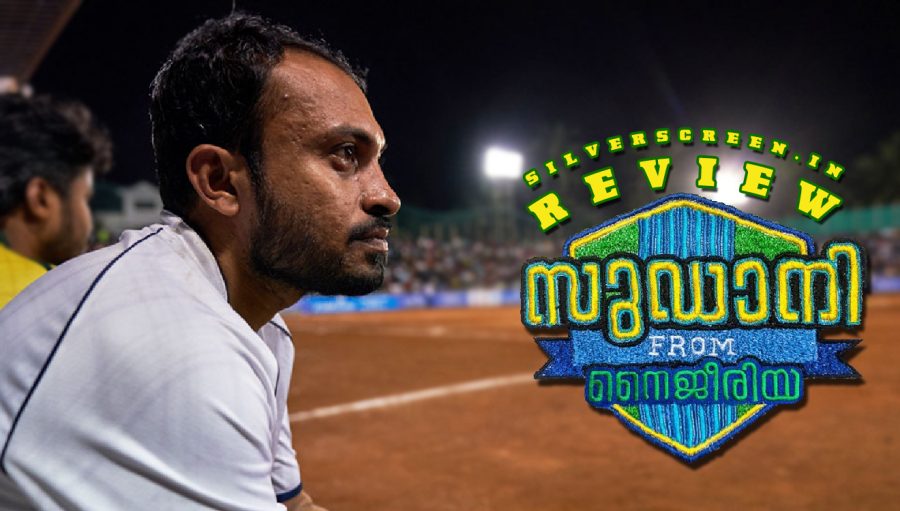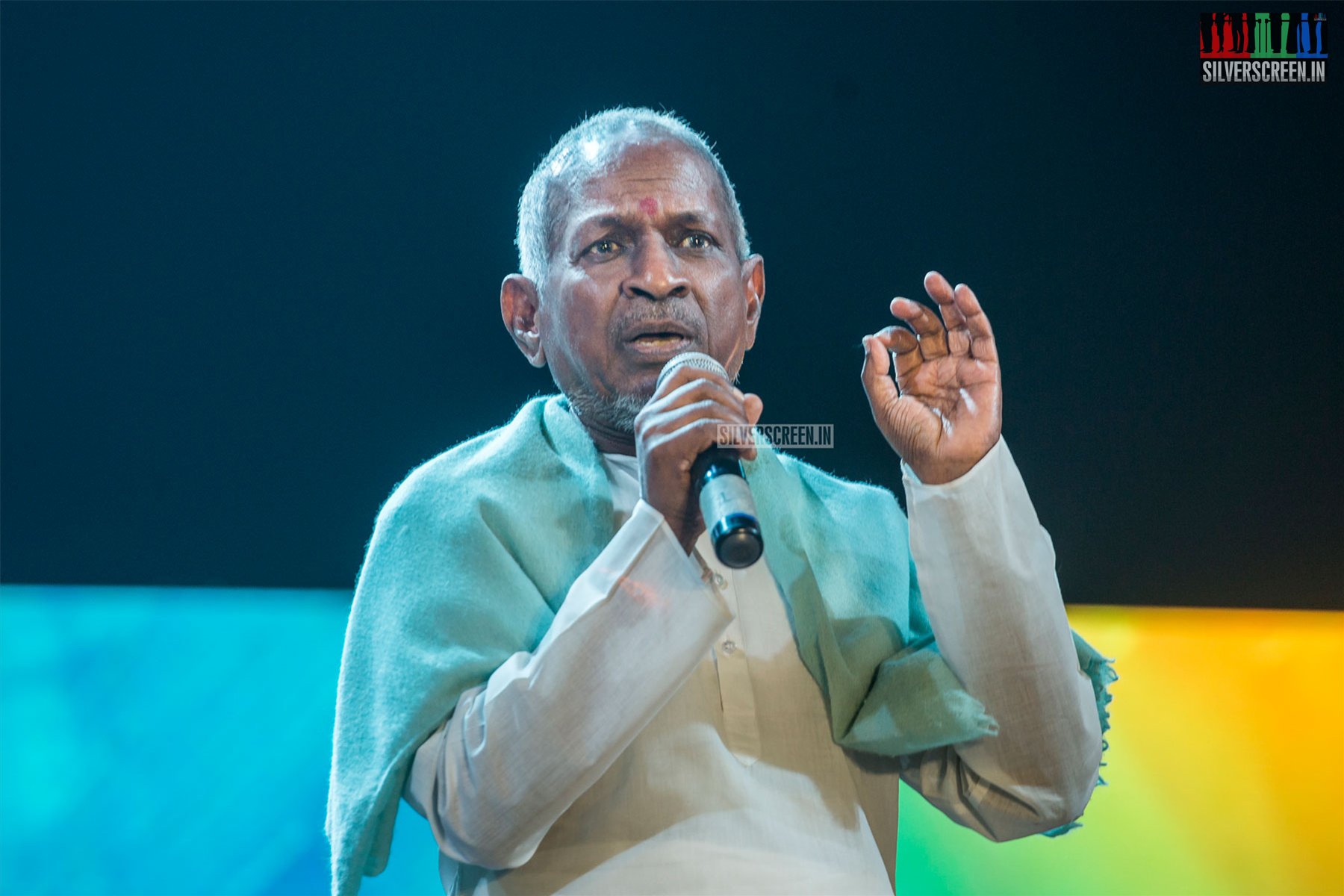Among many other things, Sudani From Nigeria is also the story of an old man who works as an ATM security guard. He never stays home for more than a day, for his step-son Majeed (Soubin Shahir) is yet to come to terms with his mother’s second marriage, or approve of him. He longingly tosses glances at Majeed who curtly walks out of the house on seeing him. His wife, witness to the pain he undergoes, weeps in silence. It’s a portrait throbbing with fine details of life. We don’t see the man very often in the movie, but he walks away with one of the best and the most lithe scenes. An injured Samuel (Samuel Abiola Robinson), the protagonist, is lying on Majeed’s bed, and the man enters the room to greet him. Smiling widely as always, he holds the footballer’s hands and introduces himself, “Father”. He pauses, and repeats, as if to relish that word once again, “Father!”
In the age of high-speed cuts that leave the audience little time to stand and appreciate moments, the camera lingers on this old man’s face long enough for us to feel the warmth.
Sudani From Nigeria, directed by debutante Zakariya, is a feat of smart filmmaking and a fantastic ensemble cast. It doesn’t have a big story arc, but narrates a modest tale so universal in theme, about accepting people as they are. The movie lacks cynicism. Rather than pursuing twists, technical gimmicks and high-octane drama in the narrative, the film relentlessly invests in the good-hearted purity of the characters. The sweetness is just right, never going over the top.
Zakariya infuses the delicious humour of a vintage Raghunath Paleri film into the humanitarianism that Blessy’s 2004 film Kazhcha upheld, while carefully cutting back on all the added flavors of melodrama that rendered the latter half-cooked.
It begins from a Sevenes football match where adrenaline runs high, but instead of playing to the gallery with more moments from the game, the film gets out of the stadium soon, and moves into a bigger actual world where the rules of the game don’t apply. The most part of the film unfurls in Majeed’s lower middle-class household in Malappuram, and two petite old women, his mother and a neighbour, become the co-anchors of the plot along with him and Samuel. In one of the scenes, the film does something even Karan Johar couldn’t bring himself to do – Take the name ‘Karachi’ loud enough for everyone to hear, reminding the world of a past when mindless nationalism, divisive politics and Islamophobia didn’t rule over rationality and art.
The film is centered around Majeed, the manager of a small-time Sevenes football team in Malappuram. Ahead of every football season, he ‘imports’ talented football players from Africa to his team. Irrespective of the country they come from, the players are known as Sudani, like how every North Indian migrant worker in Kerala is known as Bengali. The players live like menial workers in a labour camp. They sleep on a mat in a room on the terrace of a shop, and cook in a make-shift kitchen in the narrow balcony. The trouble begins when Samuel, the trump player in Majeed’s team, slips in the bathroom and injures his ankle. Majeed, already cash-strapped, is worried about the hospital expenses, as well as the future of his team. And for Samuel, who arrived in Kerala to earn some money for his sisters and grandmother back home, this injury has a larger consequence. He has much bigger problems to fight.
Although there are characters aplenty, the film largely belongs to Jameela (Savithri Sreedharan), Majeed’s mother, and Beeyumma (Sarasa Balussery), her friend and neighbor. Their disregard for the sophisticated world is wonderfully sketched out with a tint of humor. When the men express apprehension over Samuel’s inability to play, the women quietly go about nursing him back to health. They take care of him as though he is a baby. Jameela feeds Samuel, bathes him, and makes small pilgrimages to nearby mosques for his well being. A brief shot in the beginning of the film shows her washing the jerseys of the players in Majeed’s football team. Does he ever thank her for what she does for him? Not likely. They are the kind of people who form the invisible background crowd in every movie focussed on men and material. In Sudani From Nigeria, they slowly emerge from the background, and what stays the longest in mind after watching the film is the the aura of inner strength and compassion these women wear. Jameela, who shares a strained relationship with her son, is delighted to have Samuel home. Beeyumma sits by his bed, and in her innocuous Malappuram tongue, talks to him for hours together; youngsters hooked to WhatsApp and new-age things no more have the patience to listen to her. These women aren’t wealthy, but like the Children Of Heaven, they fill life with laughter and selfless love for everyone around.
For that matter, every character in the film is well defined. Zakariya inducts the audience into the characters’ world, using minimal exposition, and as the film unfolds, we identify each of them as individuals in a certain milieu. For one, there is an old Kalari exponent who comes to visit Samuel. He ties his cow on a coconut tree in front of Majeed’s house, and every now and then, someone has to warn passersby of the puddle of cow dung. It’s a funny little scene, but says a lot about the people in the frame and the community they live in.
There is an interesting sequence that begins with Majeed setting out to meet a prospective bride and her family, and ends with him returning late at night, his shirt torn and chest bleeding from a scuffle on the football field. The girl has rejected him, for he is uneducated and old-fashioned, and the rival football team is upping the ante in the absence of Samuel in his team. The future looks bleak, yet Majeed doesn’t blame anyone. The brief conversation between him and Samuel is marvellous – two people speak in the middle of the night, after a long day that left them weak and dejected. Soubin and Samuel work it out brilliantly, as if the characters are talking to themselves, addressing their own selves and existence, rather than exchanging few words of formality.
Recommended
Soubin Shahir has an element of unpredictability in his mannerisms. He camouflages into anything effortlessly, like how he stunned you in a cameo in Venu’s Carbon. And, he has the ability to be the most earnest and candid part of the film. In Maheshinte Prathikaaram, his disarming candidness reminds one of the very quality Idukki stands for, and in Parava, he personifies the tragedy that befalls youngsters in Mattanchery. As Majeed, he delivers a beautifully restrained performance as a man tending to old wounds and struggling to put life in place. He isn’t very brave. Even when fuming inside, he does’t raise his voice a lot. He is more hurt than angry. Soubin surprises you with an unseen side of his acting talent here. He is amply supported by Samuel and the horde of male actors.
Sudani From Nigeria, like Maheshinte Prathikaaram, is rooted in delectable modesty, offering big-hearted solutions to worldly problems. It also accomplishes something greater, by pulling down the ugly stereotypes about the Muslim community in Malappuram in Malayalam commercial cinema. It goes beyond the crust of cliches, and digs out a treasure of real cinema that treats characters as real people, and not as lazy props to reinforce obsolete notions.
***
The Sudani From Nigeria review is a Silverscreen original article. It was not paid for or commissioned by anyone associated with the movie. Silverscreen.in and its writers do not have any commercial relationship with movies that are reviewed on the site.



